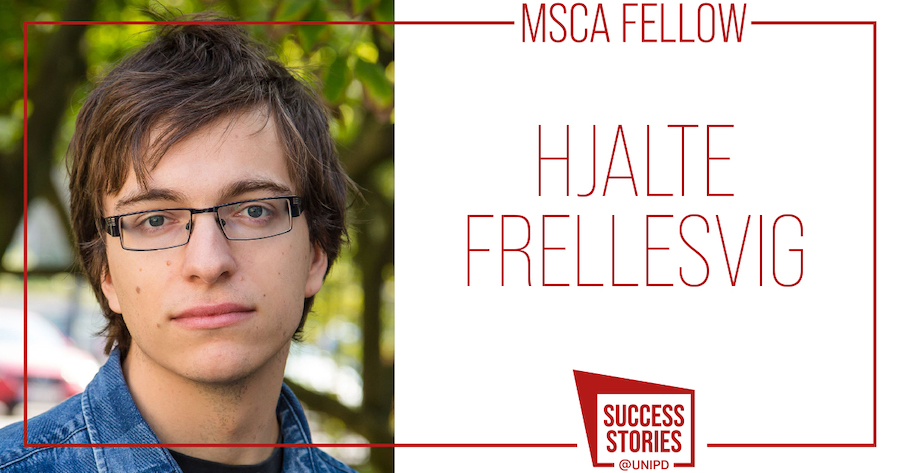
MSCA Fellow: Hjalte Frellesvig
Theory… in practice!

Hjalte Frellesvig is a theoretical particle physicist whose work focuses on specific mathematical structures called scattering amplitudes. His research uses calculational approaches to predict the outcome of particle experiments.
“Personally, I like it when theoretical physics has a connection to 'real life' in the sense of actual experiments or at least something that in principle is measurable”.
The experiments connected to the LHC (Large Hadron Collider) are the most successful particle experiments currently ongoing, resulting in the famous 2012 discovery of the Higgs boson. “I think theoretical work of the kind I am doing is necessary to get even more out of these experiments and others of its kind that are planned for the future”.
#MSCA #LHC #Higgsboson #CERN
Can you tell us something about your research path so far and why you chose to apply for a MSCA-IF?
Since I got my PhD in 2014 I have been doing Postdocs in various places in Europe. I got my PhD in Copenhagen, Denmark, and then spent three years in Athens, and one in Karlsruhe, Germany, before coming to the University of Padova. My research deals with theoretical particle physics with a focus on mathematical structures called scattering amplitudes, and calculational approaches to theoretical predictions of the outcome of particle experiments. I need more experience before I can realistically apply for a permanent academic job. The Marie Sklodowska Curie project is well suited for this since it gives me complete research independence with no teaching obligations, and it will allow me to establish an independent research profile.
Why did you choose the University of Padua as your host institution?
I have known professor Pierpaolo Mastrolia since my PhD days, he works in Padova and shares my research interests, along with a mathematics-focused approach that I like. Of course, the connection between the university and physics is well rooted in history and dates back to when outstanding scientists such as Galileo and Levi-Civita worked in the city and that aspect was motivating as well. I have not regretted this choice at all. Immediately upon my arrival, I started my research with him and the rest of his research group, and my time here has been the most productive of my whole career.
The main focus of your project will be on calculation methods and their applicability to particle colliders such as the "Large Hadron Collider". Was this applicability appreciated by the MSCA evaluation committee?
Well it must have been, since I got the fellowship! Personally I like it when theoretical physics has a connection to 'real life' in the sense of actual experiments or at least something that in principle is measurable, and thankfully it seems that this philosophy is shared by the evaluation committee. The experiments connected to the LHC are the most successful particle experiments currently ongoing, resulting in the famous 2012 discovery of the Higgs boson. I think theoretical work of the kind I am doing is necessary to get even more out of these experiments and others of its kind that are planned for the future.
What do you think of your MSCA-IF experience at the university of Padova and how do you think this will help your career?
I have enjoyed my stay in Padova and at the university! As part of my MSCA-IF experience, I had also the opportunity to arrange a scientific conference, and that happened in December 2019 (in the old observatory building La Specola) and was quite successful. I was the first MSCA-fellow in the Physics and astronomy Department, but still the people there have been helpful with administrative as well as scientific issues. My main scientific project has been on the newly discovered link between particle physics and the mathematical subfield of intersection theory, which turns out to allow for a new vector-space description of certain mathematical objects that appear in computations of the distribution of the particles produced in collision experiments. This vector-space description can help do practical computations, as well as shed light on underlying mathematical structures of physics. The work I have been doing in this direction will be defining for the rest of my career and, with the support of my supervisor, it has now allowed me to get a grant to go to the Niels Bohr Institute (in Denmark where I am originally from) to continue my research.
International Research Office
via Martiri della libertà 8, 35137 Padova, Italy
tel. +39 049.827 1947 / 1948 / 1945
fax +39 049.827 1911
international.research@unipd.it


